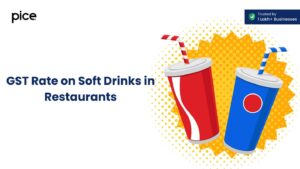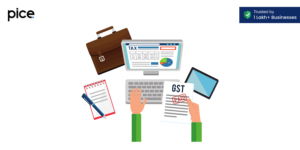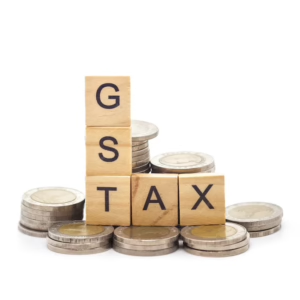What is IGST on Credit Card?
- 3 Sep 24
- 8 mins
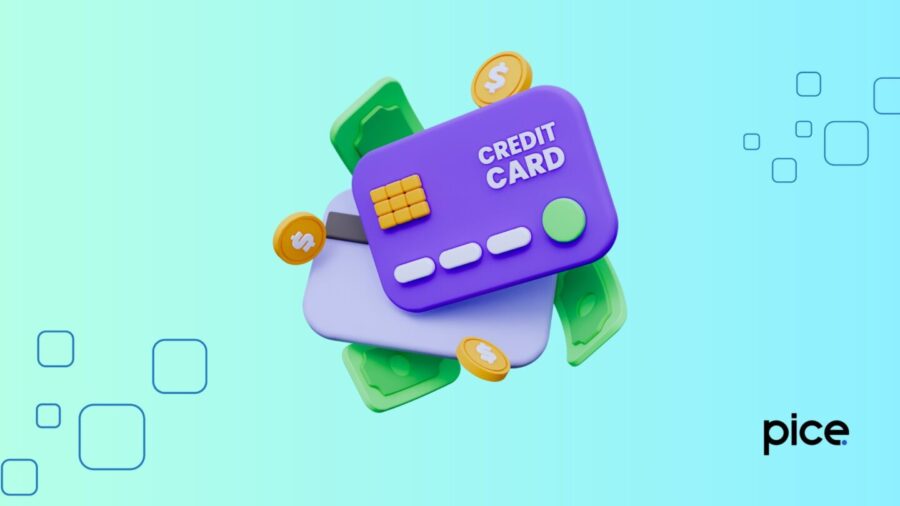
What is IGST on Credit Card?
Key Takeaways
- IGST on Credit Card Transactions: An 18% IGST applies to interstate credit card transactions, ensuring fair tax distribution between central and state governments.
- GST on Credit Card EMIs: Credit card EMIs now incur an 18% GST on interest, replacing the previous 15% service tax, increasing consumer costs.
- ITC on Credit Card Expenses: Businesses can claim Input Tax Credit (ITC) on credit card fees if they meet specific conditions in the CGST Act.
- GST Impact on Credit Card Fees: GST has raised costs for EMIs, fees, and rewards, increasing the overall financial burden on users.
- Calcutta HC Ruling on IGST: The court ruled that interstate loans without using a physical credit card are exempt from IGST, clarifying tax obligations.
The term “IGST” in a credit card statement refers to Integrated Goods and Services Tax. IGST is applicable when goods and services are moved between states or Union Territories. It is governed by the IGST Act of 2017.
It is applied to credit card services, including late payment fees, processing fees, and interest on EMIs, at the rate of 18%. The IGST makes sure that taxes are paid on services rendered across state lines. Simply put IGST makes sure that the central and state governments engaged in the transaction receive an equitable share of the tax collection.
For instance, suppose you purchase a product worth of ₹10,000 from a firm in a different state. The IGST charged on it would stand at ₹1,800, with an 18% GST rate. The Centre initially receives the amount. The Centre then splits the ₹1,800 IGST between itself and the state.
Understanding About GST Application on Credit Card EMI Payments
GST is applied to the interest part of credit card EMI payments as opposed to the principal sum. This indicates that because of the addition of GST, clients pay 18% more than the quoted interest fee.
For intrastate transactions, the relevant GST is split into CGST and SGST. While for interstate operations, it is separated into IGST.
It is important to remember that GST applies to a number of credit card expenses, such as annual, late and processing costs
You must understand these subtleties in order to compute credit card EMIs effectively and make wise financial decisions.
What Is the Applicable GST on Credit Card EMI Payment?
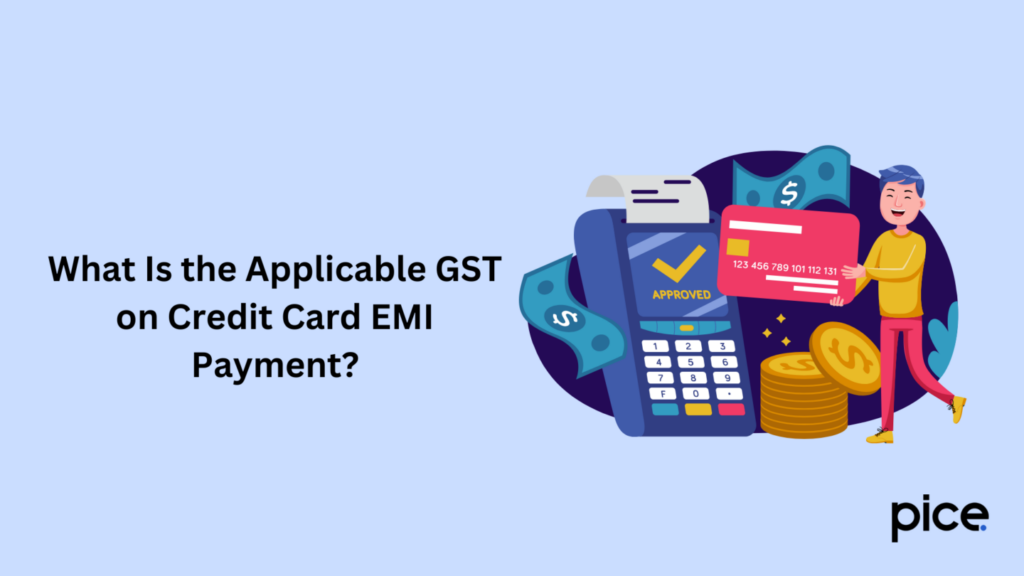
When you pay for purchases in monthly instalments using your credit card the GST amount you have to pay can vary based on what you are buying and the current GST rates set by the central government.
Generally, credit card transactions attract GST and IGST if you and the financial institution are in different states. You can go through the latest GST rates from official government sources or get advice from financial experts to make sure you have the most up-to-date information.
What Is Credit Card GST Charge vs. Service Tax?
When a credit card holder paid for something in instalments with a credit card before GST, they were charged a service tax on the transaction. This was charged on the interest part of the instalment and ranged between 15% to 18%. But now, with GST, the charges have increased tax to a fixed 18%. This means that is now more expensive to pay for things in instalments using your credit card.
What Is the Impact of GST on Credit Cards?
GST implementation has had serious repercussions on credit card users:
- This means users now have to pay more in interest.
- GST for banks have been added, resulting in increased processing fees for credit card EMIs.
- Credit card companies now collect taxes from users on rewards and cashback earned through transactions
Availability of ITC claims
Businesses can use Input Tax Credit (ITC) to reduce the taxes they owe by claiming credit for the taxes they paid on their purchases. Businesses need to meet a few conditions outlined in the CGST Act in order to claim ITC on bank charges. This includes:
- Valid tax documents like tax invoice, debit note, etc.
- Receiving the goods or services.
- Making sure that the tax was paid to the government on those goods and services.
- Filing the returns as per the CGST Act, under section 39.
Although ITC is generally available for bank charges, these specific conditions and restrictions are to be kept in mind. This will help you avoid potential penalties on credit card and ensure that your ITC claims are accurate.
Advance Rulings on GST on Credit Cards
Advance rulings provide clarity on complex tax matters in the context of GST and credit cards. For example, as in the case involving the ICU Medical Inc. subsidiary company - ICU Medical India LLP. Tamil Nadu Appellate Authority for Advance Ruling (AAR) ruled that GST is applicable on reimbursements made by the holding company to the subsidiary for business-related credit card expenses. These advance tax rulings help businesses and individuals involved in credit card transactions to understand their tax responsibilities.
How Much GST Do You Have to Pay on Credit Card EMIs?
You have to pay 18% GST on credit card EMIs. This includes the interest component and any processing fees associated with the EMI.
When Is 18% GST Applicable on Credit Card Repayments?
18% GST is applicable on various credit card-related charges. This includes:
- Payment of EMIs
- Late payment charges
- Annual fees
- Over limit charges
Credit Card EMIs: GST vs. Service Tax Comparison
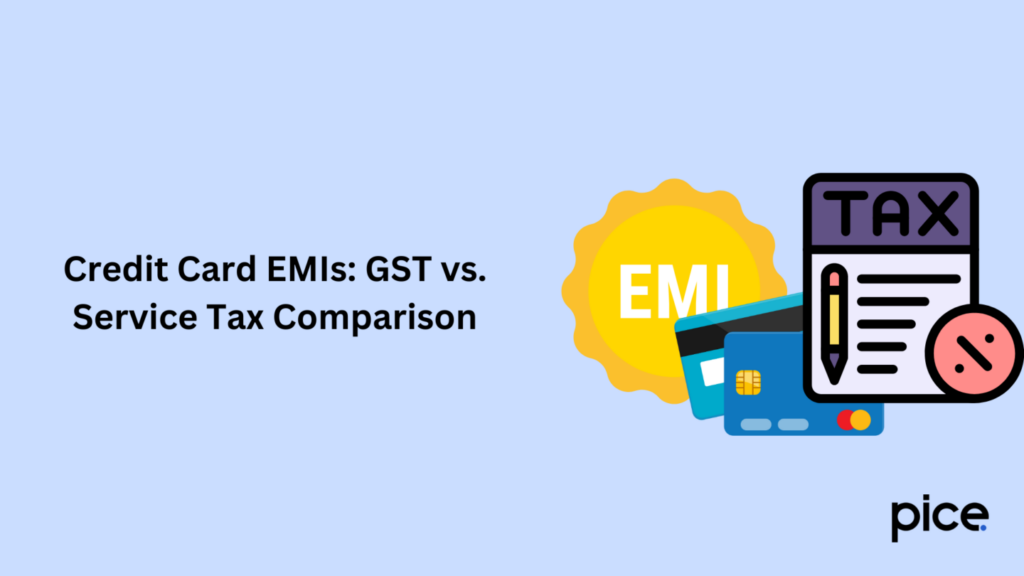
Under the previous service tax regime, credit card EMIs attracted a 15% service tax. With the introduction of GST, this rate increased to 18%, leading to a higher tax burden on credit card transactions.
Loan Granted to Credit Card Holder is Exempt from IGST: Calcutta HC
The Calcutta High Court's two-judge bench ruled that interest charged on an interstate loan to a credit card holder without using the physical card is exempt from IGST. This verdict reversed an earlier decision by a single judge who categorised the loan interest as a component of credit card services and subjected it to IGST.
In this particular instance, a resident of Kolkata received a grant of loan of ₹6,50,000 from Citi Bank. For a year, including taxes, the monthly payment to repay the loan was ₹58,056. A CitiBank branch in Tamil Nadu applied interstate taxes as they offered a loan to a person in Kolkata.
The borrower, despite owning a CitiBank credit card, said that the loan was independent of the card and no interest was charged for using it. The court subtracted the interstate taxes from the loan interest and they won ultimately.
Conclusion
Consumers and businesses must understand the complexities of GST on credit card EMI payments. Credit card is one of the most popular payment methods for EMIs, which now cost 18% due to the introduction of GST, which replaced the previous service tax of 15%.
This covers other costs, processing fees, and interest. It is essential for compliance and financial planning to stay up to date on GST laws, available ITC, and rulings on the advancement of loan.
💡If you want to pay your GST with Credit Card, then download Pice Business Payment App. Pice is the one stop app for paying all your business expenses.
 By
By 










